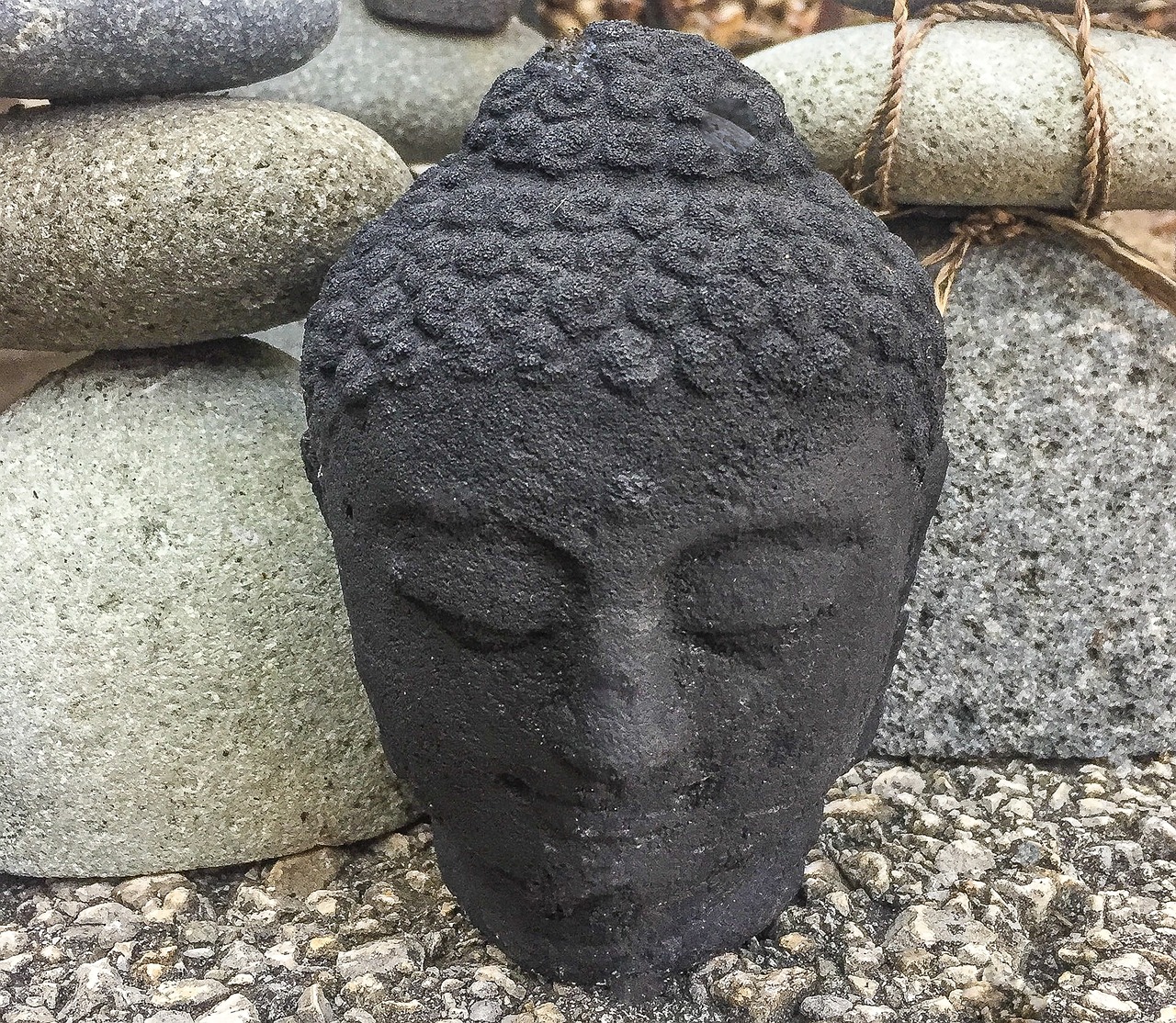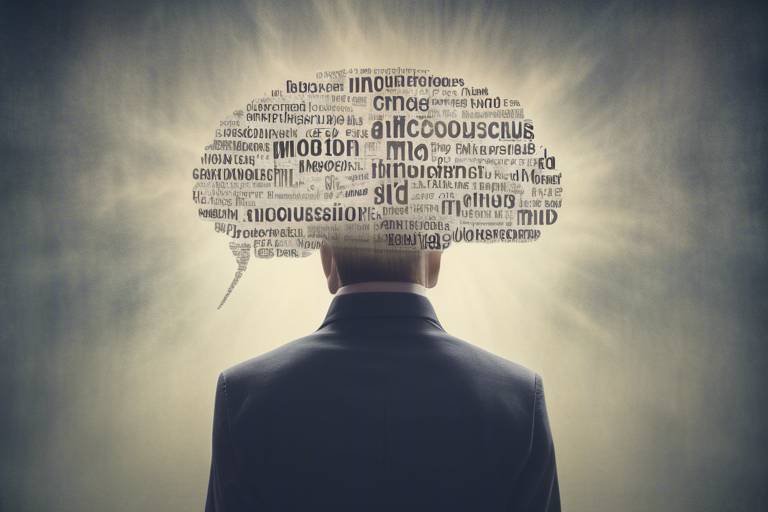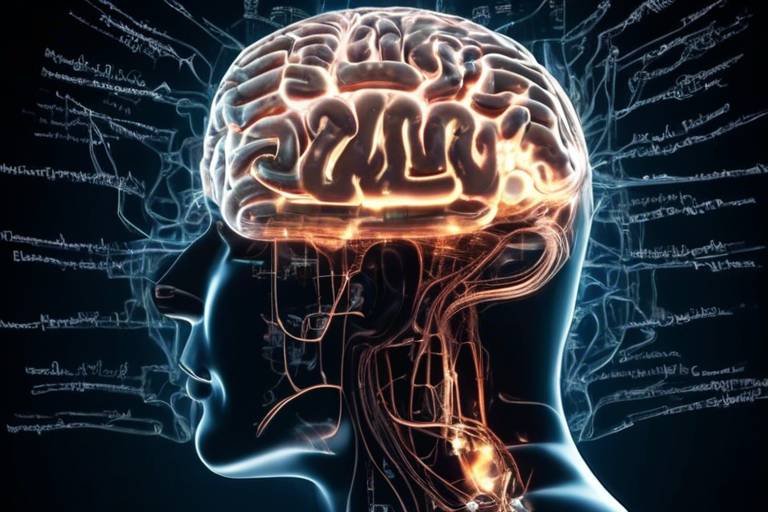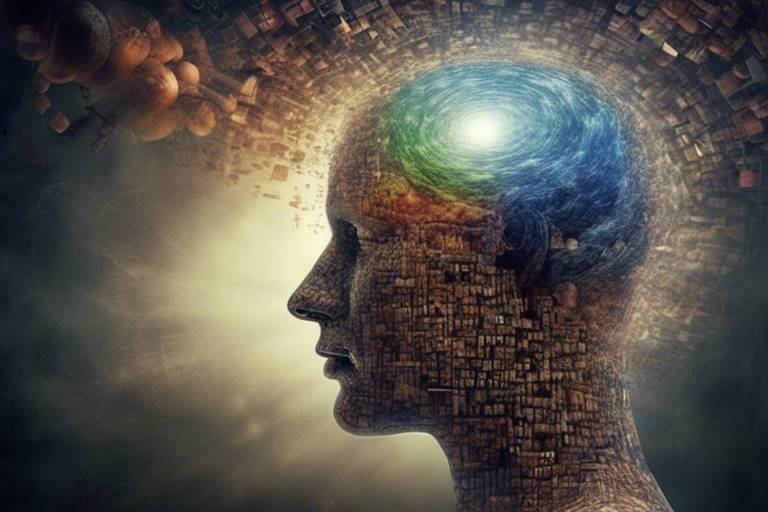Can Consciousness Be Altered at Will?
Have you ever found yourself pondering the nature of your own consciousness? It's a topic that has fascinated philosophers, scientists, and everyday folks alike for centuries. The big question is: can we actually alter our consciousness at will? The answer isn't straightforward, but the journey to explore this concept is nothing short of thrilling. Consciousness is not just a static state; it’s a dynamic and multifaceted experience that shapes our perceptions, thoughts, and emotions. From the moment we wake up to the time we drift off to sleep, our conscious state fluctuates, influenced by a myriad of factors including our environment, mental state, and even our physical health.
Imagine consciousness as a vast ocean, with waves representing our thoughts and feelings. Sometimes the water is calm, reflecting a serene state of mind, while at other times, it can be tumultuous, filled with anxiety and stress. The intriguing part is that there are methods—like meditation, hypnosis, and even the use of psychoactive substances—that can help us navigate these waters, allowing us to dive deep or float peacefully on the surface. But do these methods truly enable us to alter our consciousness at will, or are we merely riding the waves of chance?
As we delve deeper into this topic, we will explore the various techniques available for altering consciousness, examining their effectiveness and implications for personal development. In doing so, we will uncover the psychological, neurological, and philosophical perspectives that surround this captivating subject. So, buckle up as we embark on this journey to understand the depths of consciousness and the potential we have to change our experience of reality.
Before we can answer whether consciousness can be altered at will, we need to understand what consciousness actually is. At its core, consciousness is our awareness of ourselves and our environment. It encompasses everything from our thoughts and feelings to our perceptions and sensations. Think of it as the software running on the hardware of our brains. But what are the components of this software?
Consciousness can be broken down into several key components:
- Arousal: This refers to the state of being awake and responsive to stimuli.
- Awareness: This is the ability to recognize and process information from our surroundings.
- Self-awareness: This involves recognizing oneself as an individual, distinct from others and the environment.
These components interact in complex ways to shape our conscious experience. For instance, when you’re deeply engrossed in a book, your arousal level might be high, but your awareness of the outside world drops significantly. This interplay highlights the fluid nature of consciousness, suggesting that it may indeed be possible to alter our state of being.
Now that we have a foundational understanding of consciousness, let’s explore the various methods that people use to alter it. These techniques range from ancient practices to modern scientific approaches, each offering unique pathways to explore the depths of our minds.
Meditation stands out as a powerful tool for altering consciousness. It’s like a mental gym where you can train your mind to enter different states of awareness. Through various practices, meditation can enhance mental clarity, reduce stress, and even promote emotional well-being. But how does it work?
There are several meditation techniques, each with its own approach and benefits. Here are a few popular ones:
- Mindfulness Meditation: This practice encourages present-moment awareness, helping individuals observe their thoughts without judgment.
- Transcendental Meditation: Involves the use of a mantra to settle the mind into a profound state of rest and relaxation.
- Guided Imagery: This technique uses visualization to promote relaxation and alter consciousness, often guided by a facilitator.
Recent scientific research has shed light on how meditation impacts brain function and consciousness. Studies have shown that regular meditation practice can lead to neuroplasticity—the brain's ability to reorganize itself by forming new neural connections. This means that through meditation, we can literally change the structure of our brains, enhancing our capacity for emotional regulation and cognitive function.
Another compelling method for altering consciousness is hypnosis. Often misunderstood, hypnosis is a trance-like state characterized by heightened focus and concentration. It can be a powerful tool for therapeutic applications, such as pain management and overcoming phobias. But how exactly does it work?
During hypnosis, a person is guided into a relaxed state where they become more open to suggestions. This altered state of consciousness can facilitate self-exploration, allowing individuals to access memories and feelings that may be buried in their subconscious. The implications for healing and personal growth are profound.
Psychoactive substances have been used for centuries to alter consciousness, from ancient rituals to modern therapeutic practices. These substances can profoundly affect our perception, mood, and cognition, leading to altered states of awareness. However, their use comes with a complex history and ethical considerations.
While the potential benefits of psychoactive substances for consciousness alteration are significant, so too are the risks. Here are some key points to consider:
- Potential Benefits: Many substances have shown promise in treating mental health conditions, such as depression and PTSD.
- Risks: The potential for addiction, adverse psychological effects, and legal repercussions cannot be overlooked.
The use of psychoactive substances raises important legal and ethical questions. As society grapples with the implications of their use, regulatory challenges abound. Balancing the potential therapeutic benefits with the risks and societal concerns is a complex endeavor that requires careful consideration.
Q: Can anyone alter their consciousness through meditation?
A: Yes, with practice and patience, most people can learn to alter their consciousness through various meditation techniques.
Q: Is hypnosis safe?
A: When conducted by a trained professional, hypnosis is generally safe. However, it may not be suitable for everyone, particularly those with certain mental health conditions.
Q: Are psychoactive substances legal?
A: The legality of psychoactive substances varies by country and region, and it is essential to be aware of local laws before using them.

Understanding Consciousness
Consciousness is one of those enigmatic concepts that has puzzled humanity for centuries. What is it that makes us aware of our thoughts, feelings, and surroundings? At its core, consciousness can be defined as the state of being aware of and able to think about one's own existence, thoughts, and surroundings. It's the lens through which we experience life, shaping our perceptions and interactions with the world around us.
This complex phenomenon comprises various components, including awareness, perception, and self-reflection. Awareness is the basic level of consciousness, where we simply notice our environment and internal states. Perception takes this a step further, allowing us to interpret sensory information and make sense of it. Finally, self-reflection enables us to contemplate our thoughts and feelings, leading to a deeper understanding of ourselves.
But have you ever wondered how many states of consciousness exist? It's not just a matter of being awake or asleep. There are various states, including:
- Waking consciousness: Our everyday, alert state.
- Dreaming: A unique state where our minds create vivid experiences while we sleep.
- Altered states: These can be induced by meditation, hypnosis, or substances, leading to different perceptions of reality.
Each of these states offers a different lens through which we can view our experiences. For example, during dreaming, our brain engages in a form of creativity that can sometimes lead to profound insights. On the other hand, altered states can provide a break from the usual patterns of thought, allowing for new perspectives and personal growth.
The exploration of consciousness also delves into the philosophical realm. Questions arise, such as: Is consciousness a byproduct of brain activity, or is it something more? Some philosophers argue that consciousness is an intrinsic part of the universe, while others contend that it emerges from complex neural processes. The debate continues, fueling both scientific inquiry and philosophical discourse.
In recent years, advancements in neuroscience have begun to shed light on these questions. Researchers are using techniques like functional MRI (fMRI) to observe brain activity in real-time, helping to map out which areas of the brain are involved in different conscious experiences. This research not only enhances our understanding of consciousness but also opens up possibilities for altering it deliberately.
In summary, consciousness is a multifaceted and deeply intriguing subject that intertwines psychology, neuroscience, and philosophy. As we continue to explore its depths, we may unlock new ways to alter our consciousness at will, paving the way for personal transformation and deeper self-understanding.
- What is consciousness? Consciousness is the state of being aware of and able to think about one's own existence, thoughts, and surroundings.
- Can consciousness be altered? Yes, consciousness can be altered through various methods such as meditation, hypnosis, and psychoactive substances.
- What are the different states of consciousness? The main states include waking consciousness, dreaming, and altered states induced by various techniques.
- What role does neuroscience play in understanding consciousness? Neuroscience helps us understand the brain's role in consciousness through advanced imaging techniques that reveal which areas are active during different conscious experiences.

Methods of Altering Consciousness
The quest to alter consciousness has intrigued humanity for centuries, leading us down a fascinating path filled with various techniques and practices. From ancient traditions to modern science, the methods available to shift our conscious state are as diverse as they are profound. Whether you're looking to enhance your creativity, reduce stress, or simply explore the depths of your mind, understanding these methods can be a game-changer in your personal development journey.
One of the most popular and accessible ways to alter consciousness is through meditation. This practice has its roots in spiritual traditions but has gained immense popularity in contemporary wellness culture. Meditation allows individuals to quiet their minds, focus their thoughts, and enter states of deep relaxation. By doing so, practitioners often report heightened awareness and a greater connection to their inner selves. The beauty of meditation lies in its versatility; there are countless styles and techniques to choose from, making it suitable for everyone, regardless of experience level.
Another intriguing method is hypnosis. Often misunderstood, hypnosis is not a magical trance but rather a state of focused attention and heightened suggestibility. In this state, individuals can access deeper layers of their consciousness, allowing for profound self-exploration and healing. Hypnotherapy has been effectively used to address various issues, from anxiety and phobias to chronic pain management. The therapeutic applications of hypnosis are vast, making it a valuable tool for those seeking to alter their consciousness intentionally.
In addition to these practices, the use of psychoactive substances has been a traditional method for altering consciousness across cultures. Substances like psilocybin mushrooms, LSD, and ayahuasca have been used in spiritual rituals for centuries, providing users with altered perceptions and profound insights. While these substances can offer transformative experiences, they also come with significant risks and ethical considerations that must be carefully weighed. Understanding both the potential benefits and pitfalls is crucial for anyone considering this path.
To give a clearer picture of these methods, let’s take a look at a comparison table:
| Method | Effect on Consciousness | Potential Benefits | Risks |
|---|---|---|---|
| Meditation | Increased awareness, relaxation | Stress reduction, improved focus | None, if practiced properly |
| Hypnosis | Focused attention, suggestibility | Therapeutic healing, self-discovery | Misuse by untrained practitioners |
| Psychoactive Substances | Altered perceptions, expanded consciousness | Profound insights, emotional healing | Addiction, mental health risks |
These methods not only provide avenues for altering consciousness but also invite us to explore our inner landscapes. Each technique has its unique flavor, much like different cuisines around the world. The key is to find what resonates with you personally, allowing for a deeper understanding of your own consciousness.
As we venture into these methods, it’s essential to approach them with an open mind and a healthy dose of skepticism. Just like any tool, the effectiveness of these techniques can vary from person to person. So, are you ready to dive into the depths of your consciousness? The journey awaits!
- Can anyone practice meditation? Yes! Meditation is accessible to everyone, regardless of experience level.
- Is hypnosis safe? When performed by a trained professional, hypnosis is generally safe and can be very effective.
- Are psychoactive substances legal? This varies by location and substance; it's essential to research local laws and regulations.

The Role of Meditation
Meditation is often hailed as a powerful tool for altering consciousness, and for good reason! It's like a secret key that unlocks the door to the mind's deeper realms. Imagine your mind as a bustling city, filled with noise, distractions, and endless thoughts. Now, picture meditation as a serene park in the middle of that city, offering a peaceful retreat where you can gather your thoughts and find clarity. This practice has been used for thousands of years across various cultures, not only as a spiritual exercise but also as a means to enhance mental well-being.
At its core, meditation involves focusing your attention and eliminating the stream of thoughts that may be crowding your mind. This process can lead to profound changes in your state of consciousness. When you meditate, you're not just sitting quietly; you're engaging in a practice that can help you tap into different layers of awareness. Studies have shown that regular meditation can lead to increased self-awareness, emotional regulation, and even improved cognitive function.
There are numerous meditation techniques, each offering unique pathways to altered states of consciousness. For instance, mindfulness meditation encourages you to stay present and fully engage with your thoughts and feelings without judgment. On the other hand, transcendental meditation allows you to transcend ordinary thought processes by focusing on a specific mantra, leading to a deep state of relaxation and heightened awareness. Guided imagery, where you visualize calming scenes or scenarios, can transport you to a tranquil mental space, providing a respite from daily stressors.
But why does meditation work so effectively? The answer lies in its impact on the brain. Research indicates that meditation can induce changes in brain structure and function. For example, regular practitioners often show increased gray matter density in areas of the brain associated with memory, emotional regulation, and self-referential thought. This phenomenon, known as neuroplasticity, underscores the brain's ability to reorganize itself in response to new experiences, including meditation.
Moreover, meditation has been linked to improvements in mental health. It can reduce symptoms of anxiety and depression, making it a valuable tool for anyone looking to enhance their emotional well-being. By fostering a sense of inner peace and mindfulness, individuals can better navigate the complexities of life, making meditation not just a practice, but a lifestyle choice that promotes a healthier, more balanced state of consciousness.
In summary, meditation serves as a powerful ally in the quest for altered states of consciousness. It allows individuals to step back from the chaos of daily life and explore the depths of their minds. Whether you're seeking stress relief, a deeper understanding of yourself, or simply a moment of calm amidst the storm, meditation can help you achieve that. So, why not give it a try? You might just discover a new way to experience life!

Types of Meditation
Meditation is a vast and diverse practice, and there are numerous that cater to different needs and preferences. Each type offers a unique pathway to altering one's consciousness, providing various benefits that can enhance mental clarity, emotional stability, and overall well-being. Let’s explore some of the most popular meditation techniques that people use to embark on their journey of self-discovery and mindfulness.
One of the most well-known forms is mindfulness meditation. This practice encourages individuals to focus on the present moment, observing thoughts and sensations without judgment. Imagine sitting quietly and simply noticing your breath or the sounds around you. This practice can help cultivate a deep sense of awareness and acceptance, allowing you to navigate life's challenges with greater ease.
Another popular method is transcendental meditation (TM), which involves the silent repetition of a specific mantra. Practitioners believe that this technique can lead to profound states of relaxation and heightened awareness. TM is often likened to taking a mental vacation, where the mind transcends ordinary thought and enters a state of pure consciousness. This can be particularly beneficial for those seeking stress relief and mental clarity.
Guided imagery is yet another fascinating approach to meditation, where individuals visualize serene and peaceful images, often accompanied by soothing narration. This technique can transport the mind to tranquil settings, such as a beach or a forest, promoting relaxation and emotional healing. It’s like taking a mini-vacation for your mind, allowing you to escape the hustle and bustle of everyday life.
While these are just a few examples, there are many other types of meditation, including loving-kindness meditation, body scan, and Zen meditation, each with its own unique techniques and benefits. The beauty of meditation lies in its versatility; there’s a style for everyone, whether you prefer a structured approach or a more free-flowing practice.
In summary, the types of meditation available are as diverse as the individuals who practice them. Each method provides a different lens through which one can explore and alter consciousness, making meditation an accessible and enriching tool for personal growth and transformation.

Scientific Studies on Meditation
Meditation has transcended its roots as a spiritual practice to become a focal point of scientific inquiry. Researchers have dedicated countless hours to unraveling the mysteries of how meditation influences the brain and alters consciousness. One of the most compelling aspects of these studies is the evidence suggesting that meditation can lead to significant changes in brain structure and function. For instance, neuroimaging studies have shown that individuals who practice meditation regularly exhibit increased gray matter density in regions of the brain associated with memory, emotional regulation, and self-awareness.
Moreover, a landmark study published in Psychiatry Research: Neuroimaging demonstrated that just eight weeks of mindfulness meditation training resulted in measurable changes in the brain. Participants showed increased activity in the left prefrontal cortex, a region linked to positive emotions and resilience. This suggests that meditation not only alters our consciousness but also equips us with the tools to manage our emotions more effectively. To illustrate, let’s look at some of the key findings from recent scientific studies:
| Study | Findings |
|---|---|
| Davidson et al. (2003) | Increased left prefrontal activation in meditators, linked to positive affect. |
| Holzel et al. (2011) | Changes in brain regions related to self-referential processing and perspective taking. |
| Zeidan et al. (2010) | Improved pain tolerance and reduced pain perception in participants after mindfulness meditation. |
| Goyal et al. (2014) | Meta-analysis showing meditation’s positive effects on anxiety, depression, and pain. |
These studies provide a glimpse into the profound effects meditation can have on our mental landscape. Not only does it enhance our ability to focus and concentrate, but it also fosters a greater sense of emotional well-being. The neuroplasticity associated with meditation suggests that our brains can adapt and change throughout our lives, much like a muscle that strengthens with exercise. This adaptability is particularly exciting for those seeking personal development, as it implies that anyone can cultivate a more mindful and conscious state of being through dedicated practice.
Furthermore, meditation has been linked to improved emotional regulation. Research indicates that regular practitioners of mindfulness meditation are better equipped to handle stress and anxiety. One study found that participants who engaged in mindfulness meditation showed a significant reduction in anxiety levels compared to those who did not practice. This ability to manage stress effectively is crucial in today’s fast-paced world, where mental health issues are increasingly prevalent.
In conclusion, the scientific studies surrounding meditation reveal a treasure trove of benefits that extend far beyond mere relaxation. As we continue to explore the depths of consciousness and the methods to alter it, meditation stands out as a powerful tool for enhancing our mental faculties and emotional resilience. With each new study, we gain a clearer understanding of how this ancient practice can be harnessed to improve our modern lives.
- What is meditation? Meditation is a practice that involves focusing the mind to achieve a mentally clear and emotionally calm state.
- How does meditation affect the brain? Research shows that meditation can lead to changes in brain structure, including increased gray matter density in areas associated with emotional regulation and self-awareness.
- Can anyone learn to meditate? Yes, meditation is accessible to everyone, regardless of experience level. There are various techniques to suit different preferences.
- How long should I meditate? Even short sessions of 5-10 minutes can be beneficial. Consistency is more important than duration.

Hypnosis and Its Effects
Hypnosis is often shrouded in mystery and misconceptions, but at its core, it is a fascinating method for altering consciousness that has been utilized for centuries. It involves a state of focused attention, heightened suggestibility, and deep relaxation, allowing individuals to tap into their subconscious mind. Imagine being in a deeply relaxed state, where your mind is open and receptive, much like a sponge soaking up water. This state can lead to profound changes in perception, memory, and even behavior.
So, how does hypnosis actually work? The process typically begins with a trained hypnotist guiding the individual into a trance-like state through verbal cues and relaxation techniques. Once in this state, the person may experience altered sensations, increased imagination, and a reduced awareness of their surroundings. This unique state of consciousness can be incredibly beneficial for various therapeutic applications, such as pain management, anxiety reduction, and even overcoming phobias.
One of the most compelling aspects of hypnosis is its ability to facilitate self-exploration and healing. Many people have reported breakthroughs in understanding their thoughts and feelings while under hypnosis. For instance, a person struggling with a traumatic memory might find that revisiting that memory in a safe, controlled environment allows them to process it more effectively. This can lead to emotional release and a newfound sense of clarity.
Moreover, hypnosis is not just a tool for therapists; individuals can also learn self-hypnosis techniques. This empowers them to manage stress, enhance focus, and cultivate positive habits. Picture it as having a remote control for your mind, allowing you to change the channel from negative thoughts to a more positive, productive mindset.
However, it's essential to understand that hypnosis is not a magical solution. While it can be incredibly effective, it may not work for everyone. Some individuals are more susceptible to hypnotic suggestions than others. The effectiveness of hypnosis can also depend on the individual's willingness to engage in the process. Those who approach hypnosis with skepticism may not experience the same benefits as those who are open to the experience.
In summary, hypnosis is a powerful method for altering consciousness that offers numerous benefits, from therapeutic applications to personal development. It allows individuals to explore the depths of their subconscious and can lead to significant changes in behavior and emotional well-being. As we continue to explore the complexities of consciousness, hypnosis stands out as a remarkable tool that bridges the gap between the mind and body.
- Is hypnosis safe? Yes, when conducted by a trained professional, hypnosis is considered safe. However, it is essential to find a qualified practitioner.
- Can anyone be hypnotized? Not everyone is equally susceptible to hypnosis. Some people may find it easier to enter a hypnotic state than others.
- What can hypnosis be used for? Hypnosis can be used for various purposes, including pain management, anxiety relief, habit change, and self-exploration.
- Will I lose control under hypnosis? No, individuals under hypnosis remain in control and cannot be made to do anything against their will.

Psychoactive Substances
Psychoactive substances have intrigued humanity for centuries, serving as a bridge to altered states of consciousness. These compounds, which can be naturally occurring or synthetically produced, interact with the brain's chemistry to influence perception, mood, and cognition. From the ancient use of plants in shamanic rituals to the modern exploration of psychedelics in therapeutic settings, the journey of psychoactive substances is as complex as it is fascinating. But what exactly are these substances, and how do they impact our consciousness?
At their core, psychoactive substances can be classified into several categories based on their effects on the human mind and body. Common classifications include:
- Stimulants: These substances, such as caffeine and cocaine, increase alertness and energy levels.
- Depressants: Alcohol and benzodiazepines fall into this category, often leading to relaxation and reduced anxiety.
- Hallucinogens: Substances like LSD and psilocybin mushrooms alter perception and can induce profound changes in consciousness.
- Opioids: These are primarily used for pain relief but can also produce feelings of euphoria.
The historical context of psychoactive substances is rich and varied. For instance, indigenous cultures have long utilized natural psychedelics in spiritual ceremonies, believing these substances provide a deeper connection to the universe. In contrast, the modern era has seen a surge in research surrounding psychedelics' therapeutic potential, particularly in treating conditions like PTSD and depression. This shift raises a pivotal question: can we responsibly harness the power of these substances for healing?
While the potential benefits are significant, the use of psychoactive substances is not without its risks. Addiction, mental health issues, and legal ramifications are critical considerations. For example, while substances like cannabis are becoming increasingly legalized and accepted, others remain heavily regulated due to their potential for abuse and harm. It's essential for individuals to weigh these factors carefully.
Furthermore, the ethical implications surrounding psychoactive substances cannot be overlooked. As society grapples with the consequences of drug use, questions arise about who should have access to these substances and under what circumstances. Should they be available for recreational use, or should their use be strictly limited to therapeutic settings? The answers to these questions are complex and often influenced by cultural perceptions and legal frameworks.
In conclusion, psychoactive substances offer a fascinating glimpse into the potential for altering consciousness. They serve as tools for exploration, healing, and sometimes, escapism. As we move forward, it’s crucial to approach these substances with both curiosity and caution, ensuring that we honor their power while safeguarding our well-being.
Q: What are psychoactive substances?
A: Psychoactive substances are compounds that, when consumed, affect the brain's function, leading to changes in perception, mood, and cognition.
Q: Are all psychoactive substances illegal?
A: No, not all psychoactive substances are illegal. Some, like alcohol and caffeine, are legal and widely used, while others, like heroin, are illegal due to their high potential for abuse.
Q: Can psychoactive substances be used safely?
A: While some individuals use psychoactive substances safely, there are risks involved, including addiction and adverse mental health effects. It is essential to approach their use with caution and informed understanding.
Q: What is the therapeutic potential of psychedelics?
A: Recent studies suggest that psychedelics may help treat various mental health conditions, such as depression and PTSD, by promoting neuroplasticity and emotional healing.

Risks and Benefits
When it comes to altering consciousness through psychoactive substances, the conversation often revolves around the risks and benefits associated with their use. These substances, ranging from natural plants to synthetic compounds, can lead to a variety of experiences that might enhance or detract from one's quality of life. Understanding these dual aspects is crucial for anyone considering their use.
On one hand, the potential benefits of psychoactive substances can be quite compelling. Many people report enhanced creativity, altered perceptions, and even profound spiritual experiences. For instance, substances like psilocybin (found in magic mushrooms) and LSD have been studied for their potential to treat conditions such as depression and PTSD. In a controlled setting, these substances can lead to significant breakthroughs in therapy, as they allow individuals to confront and process traumatic memories in ways that traditional methods may not.
However, with these benefits come notable risks. The use of psychoactive substances is not without its dangers. Addiction is a significant concern, as certain substances can lead to physical and psychological dependence. Furthermore, the effects of these drugs can vary widely from person to person, leading to unpredictable outcomes. For example, while one individual may experience euphoria and insight, another may suffer from anxiety or paranoia. This unpredictability can be particularly dangerous, especially in unregulated environments.
| Benefits | Risks |
|---|---|
| Potential therapeutic effects | Risk of addiction |
| Enhanced creativity and insight | Unpredictable psychological effects |
| Altered perspectives leading to personal growth | Possible legal repercussions |
| Facilitated emotional processing | Risk of negative experiences (bad trips) |
Moreover, the legal landscape surrounding psychoactive substances adds another layer of complexity. Many substances are classified as illegal in various jurisdictions, which can lead to severe legal consequences for users. This not only affects individuals but also raises broader societal questions about the regulation of such substances and their potential for therapeutic use.
In conclusion, while the allure of altering consciousness through psychoactive substances can be tempting, it is essential to weigh the risks against the benefits. Education and responsible use are key to navigating this complex landscape. As research continues to evolve, we may find more ways to harness the positive aspects while minimizing the downsides, but for now, caution is advised.
- What are psychoactive substances? Psychoactive substances are chemicals that affect the brain's function, leading to changes in mood, perception, and consciousness.
- Are there safe ways to use these substances? While some individuals report positive experiences, it's crucial to approach their use with caution, preferably in a controlled and legal environment.
- Can psychoactive substances be used for therapy? Yes, recent studies have shown potential therapeutic benefits, especially in treating mental health conditions, but more research is needed.
- What should I do if I experience negative effects? If you experience negative effects, it is important to seek help from a medical professional or a trusted individual.

Legal and Ethical Implications
When we dive into the realm of psychoactive substances and their ability to alter consciousness, we are not just stepping into a world of personal exploration; we are also entering a complex web of legal and ethical considerations. The history of psychoactive substances is rich and varied, often intertwined with cultural practices, religious rituals, and even medical advancements. However, as society evolves, so do the laws governing these substances, creating a landscape that can be both confusing and contentious.
One of the primary legal challenges surrounding the use of psychoactive substances is the regulatory framework that categorizes these substances. Many countries classify drugs based on their potential for abuse, medicinal value, and safety. For instance, substances like cannabis have been legalized in several regions for both medicinal and recreational use, while others remain strictly prohibited. This inconsistency raises questions about equity and access—why should some individuals have the right to alter their consciousness with certain substances while others do not?
Furthermore, the ethical implications of using psychoactive substances for consciousness alteration cannot be overlooked. On one hand, proponents argue that these substances can provide therapeutic benefits, such as alleviating mental health issues or enhancing creativity. On the other hand, there are concerns about addiction, dependency, and the potential for abuse. The fine line between therapeutic use and recreational abuse often blurs, leading to a myriad of ethical dilemmas. For instance, is it ethical to promote substances that may lead to addiction, even if they have potential benefits?
Moreover, the societal implications of legalizing psychoactive substances are profound. Consider the impact on public health systems, law enforcement, and community safety. Legalization could lead to increased accessibility, which might help some individuals but also pose risks of misuse and overconsumption. This duality presents a challenge for policymakers who must weigh the potential benefits against the risks to society at large.
In addition, the ethical discussions surrounding informed consent and personal responsibility are crucial. Individuals have the right to make choices about their own bodies and minds, but when it comes to psychoactive substances, how informed are these choices? Are users fully aware of the risks involved? This question becomes even more pressing when considering vulnerable populations who may not have the same access to information or resources.
As we navigate these complex waters, it is essential to engage in open dialogues about the legal and ethical dimensions of consciousness alteration. Only through understanding and addressing these challenges can we hope to create a more equitable and responsible framework for the use of psychoactive substances.
- What are psychoactive substances? Psychoactive substances are chemicals that affect the brain's function, leading to alterations in perception, mood, consciousness, and behavior.
- Are there legal psychoactive substances? Yes, many countries have legalized certain psychoactive substances, such as cannabis, for medicinal or recreational use, while others remain illegal.
- What are the risks of using psychoactive substances? Risks can include addiction, negative health effects, impaired judgment, and potential legal consequences.
- Can psychoactive substances be used therapeutically? Some psychoactive substances are being researched for their potential therapeutic benefits, particularly in mental health treatment.
Frequently Asked Questions
- What is consciousness?
Consciousness is the state of being aware of and able to think about one’s own existence, thoughts, and surroundings. It encompasses various levels of awareness, from being fully alert to altered states like dreaming or meditative states. Think of it as the spotlight in a theater that illuminates certain aspects of our mind while leaving others in the dark.
- Can I alter my consciousness at will?
Yes, many techniques can help you alter your consciousness intentionally. Methods like meditation, hypnosis, and the use of psychoactive substances provide pathways to shift your mental state. It’s like having a remote control for your mind, allowing you to change the channel to a different experience.
- What are the benefits of meditation for consciousness alteration?
Meditation can enhance self-awareness, reduce stress, and promote emotional well-being. By practicing regularly, individuals may experience greater clarity of thought and a deeper connection to their inner selves. It’s akin to tuning a musical instrument; with practice, you can achieve a harmonious state of mind.
- How does hypnosis work?
Hypnosis involves guiding someone into a deeply relaxed state where they become more open to suggestions. This state can facilitate therapeutic outcomes, such as pain relief or overcoming phobias. Imagine it as a deep dive into your subconscious, where you can explore and reshape your thoughts and behaviors.
- What are psychoactive substances?
Psychoactive substances are chemicals that affect brain function, altering mood, perception, and consciousness. They can range from legal substances like caffeine and alcohol to illegal drugs. Think of them as keys that can unlock different doors in your mind, but with varying consequences.
- Are there risks associated with using psychoactive substances?
Yes, while some psychoactive substances may offer therapeutic benefits, they also carry risks such as addiction, mental health issues, and legal consequences. It’s crucial to weigh these factors carefully, like balancing the pros and cons of a high-stakes gamble.
- What are the ethical implications of altering consciousness?
The use of methods to alter consciousness raises important ethical questions, such as the potential for misuse, the impact on mental health, and societal norms. It’s essential to navigate these waters thoughtfully, ensuring that personal freedom doesn’t come at the expense of safety and well-being.



















